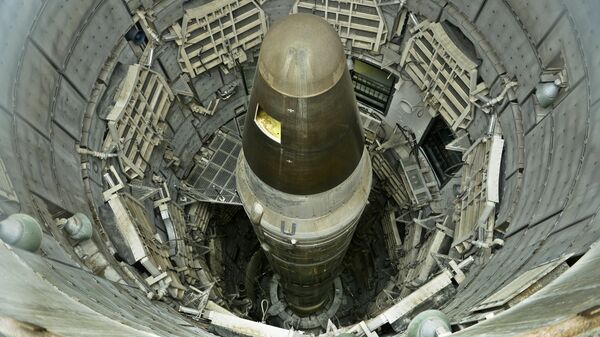MOSCOW (Sputnik) — Russia may prepare an adequate response to ensure the country's protection If the United States decides to withdraw from the Intermediate-Range Nuclear Forces (INF) Treaty, the first deputy chairman of Russia's Federation Council Committee on Defense and Security Frants Klintsevich told Sputnik on Tuesday.
"If the United States pull out of the INF Treaty, of course, we will take specific steps with creation of similar weapons related to the intermediate-range and shorter-range missiles with a range of up to 1,500 kilometers… An adequate response will be prepared in order to ensure security of our country, including with the possibility of using the air defense systems," Klintsevich said.
The senior Russian lawmaker also added that such a move of Moscow would be technically feasible.
Meanwhile, Europe stands for the extension of the Russia-US 2010 New Strategic Arms Reduction Treaty (New START), as the European security can encounter a significant threat should it not be resumed by 2021, as German Foreign Minister Sigmar Gabriel said earlier this year.
Germany advocates "Moscow and Washington renewing the New START treaty, which expires in 2021," Gabriel said in an article for Germany's Rheinische Post newspaper.
Gabriel also stressed that the Intermediate-Range Nuclear Forces (INF) Treaty was "a milestone of the European security," which is "in danger now." The minister insisted that Washington had to reestablish the dialogue on "strategic stability."
In June, US Under Secretary Thomas Shannon and Russian Deputy Foreign Minister Sergey Ryabkov agreed to hold bilateral New START meetings to discuss issues related to the treaty’s implementation.
Under the New START treaty, signed between Russia and the United States in 2010, Moscow and Washington jointly agreed to decrease the number of deployed nuclear warheads to 1,550 and the number of deployed intercontinental ballistic missiles, submarine-launched ballistic missiles and strategic bombers to 700 by 2018. The agreement is set to expire in 2021 and could be extended if mutual understanding between the countries is reached.
The INF Treaty signed by Soviet President Mikhail Gorbachev and his US counterpart Ronald Reagan in 1987 prohibits the development, deployment and testing of ground-launched ballistic or cruise missiles with ranges between 300 and 3,400 miles. Moscow and Washington have repeatedly accused each other of violating the treaty.




